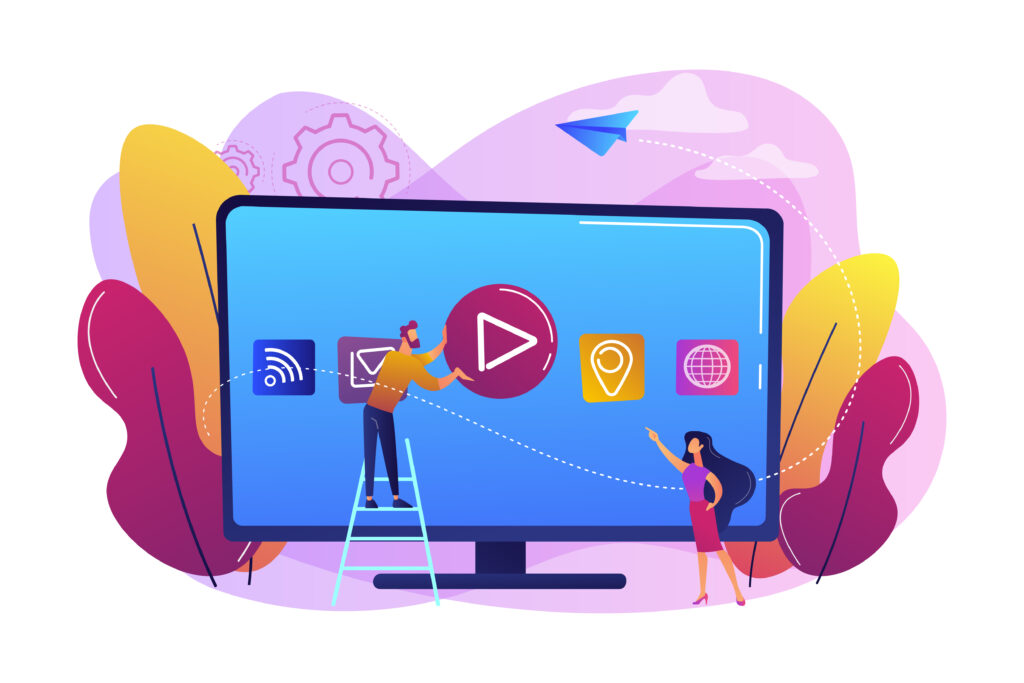
MESA Takes in Media For All 10 at Antwerp University
ANTWERP, Belgium — I had the pleasure of representing MESA at the 10th edition of Media For All, which took place at Antwerp University 5-7 July.
This bi-annual conference is focused on various forms of audiovisual translation and media accessibility and brings together contributors from across the industry to share learnings and discuss expectations for the future direction of this sector.
The theme of this year’s conference was the role of human agents in the translation process, and given the recent explosion in generative AI and continued developments in machine learning and automated workflows, there was plenty to talk about.
 MESA was invited by the organisers to host a panel session with the main sponsors of the event, with the panel featuring Dr. Volker Steinbiss, managing director at AppTek GmbH, Andrew Verkade, VP of global accounts, EMEA for Deluxe, Wayne Garb, CEO and co-founder of OOONA, and Kamen Ferdinandov, CTO at Profuz Digital.
MESA was invited by the organisers to host a panel session with the main sponsors of the event, with the panel featuring Dr. Volker Steinbiss, managing director at AppTek GmbH, Andrew Verkade, VP of global accounts, EMEA for Deluxe, Wayne Garb, CEO and co-founder of OOONA, and Kamen Ferdinandov, CTO at Profuz Digital.
The session — “Transforming Localisation: Can Smart Machines Allow For Greater Human Creativity” — focused on how humans and technology could work together to enable greater efficiencies whilst also maintaining the essence of localisation — creativity, so we can ensure that content remains compelling for global audiences.
After the audience had been taken through an in-depth demonstration of OOONA’s platform, the audience was asked for their thoughts on the biggest challenges facing the content localisation industry. The feedback generated several talking points with AI and rates proving the most popular responses.
This was followed by automation, unpredictability, turnaround times and retaining talent. Fear, uncertainty, and change were also mentioned, demonstrating the unease which many translators feel in the face of rapid technological developments.
While all the panelists recognise change is happening and some are at the forefront of these movements, they also acknowledged that the best way to face the challenge was to support translators and to ensure that technology was used in the most appropriate way, was intuitive and enhanced the finished product. Ferdinandov highlighted the importance of a good user interface to help the transition.
Everyone agreed that some genres were far more suited to machine learning than others at this time. Using technology to aid the completion of mundane tasks and allowing greater time to transcreate is viewed as highly beneficial.
The way content is being consumed has changed, with the younger generation watching on phones and tablets, often with the subtitles on and sometimes at accelerated speed. The appetite for short-form content continues unabated and they are often multitasking. It could be argued that these trends lend themselves very well to automation, as quality is not always the top priority.
It was also interesting that more than half the audience felt they used AI very little in their everyday work. While just over 40 percent said they used AI quite often or most of the time. It demonstrated that people aren’t always sure what AI is and how it is working in the background. Verkade pointed out AI is used all the time, and Steinbiss provided the audience with a scientific definition.
A key question from the audience was how companies are working to build trust around these systems?
 The panelists acknowledged the concerns and reiterated the need to collaborate and for users of these systems to speak up and tell companies what was working and what wasn’t working. It was only through collaboration and shared learning that improvements could be made.
The panelists acknowledged the concerns and reiterated the need to collaborate and for users of these systems to speak up and tell companies what was working and what wasn’t working. It was only through collaboration and shared learning that improvements could be made.
Steinbiss finished the session with a demonstration of AppTek’s automatic dubbing technology, showing that subtitling is not the only form of localisation which is undergoing change.
It was impossible to attend every session at the conference and sometimes hard to choose, as there was plenty of interesting content. The sessions around accessibility were fascinating, and hearing from people at the forefront of trying to make media truly available for all was very inspiring.
In the panel “The Balance Between Standardisation and Creativity in Media Accessibility,” which was moderated by Pablo Romero Fresco, an honorary professor who is leading several international projects on media accessibility and accessible filmmaking, the audience was left with some thought-provoking questions: if it’s really “media for all” Who is still excluded? Who gets to decide/create? And what is your position? Much more needs to be done to provide greater access to media and to ensure there is better diversity and representation both in front of the camera and behind it.
The session “Media For All? What About the Speakers of Minoritized Languages?” focused on the lack of localised content for people who spoke minority languages within their country.
Several studies have been conducted about the effects of this lack of localised content, particularly for children and the concern that some of these languages were in danger of becoming obsolete.
This is perhaps an area where AI could prove highly beneficial.
Another highlight was “The Future of Work in Media Localisation and Accessibility: Talent Crunch in the Age of AI?” moderated by Agnieszka Szarkowska and Łukasz Dutka, leading academics in the field of AV translation and co-founders of AVT Masterclass.
 The panelists came from across the industry and provided the audience with a full 90 minutes of insights and thought leadership.
The panelists came from across the industry and provided the audience with a full 90 minutes of insights and thought leadership.
Including dispelling the belief that there is still a talent crunch impacting localisation, there are shortages of certain languages at times, but in the main, there was strong agreement that the crunch has passed. There was also consensus from the audience that there is less work in media localisation this year, with 64 percent of the audience holding this opinion, while close to a quarter are seeing more work. Around half the audience also see AI as a threat to the status of audiovisual translators, while 28 percent don’t see it as a threat and around one in five are unsure.
In summary, Media For All was thought provoking and raised many questions that the industry must look to address in the coming months and years ahead.
It was also evident that those who work within this sector are incredibly passionate and love what they do.
It remains to be seen how the relationship between humans and AI will ultimately play out, but events such as this are critically important in keeping the dialogue open and enabling everyone in the industry to have a voice.
* By Caroline Baines, Senior Director of Client Services *
